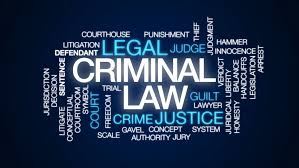Handling taxes can be quite complicated and most people need professional assistance to stay tax compliant. However, choosing the right tax professional can be tricky. It is easy to get confused between tax accountants and tax lawyers. When looking for a professional, you might wonder whether you need an accountant or a tax lawyer. Both the professionals deal with taxes but these are different professions. So, which one you should choose for handling your taxes? Do you need a Certified Public Accountant (CPA) or a tax lawyer?
As the name suggests, a tax lawyer means someone who specialized in legal matters while accountants provide tax preparation. If you need to file tax returns while remaining fully compliant with the IRS, a tax accountant can help you. However, if you need comprehensive tax services, you should hire a tax lawyer. A tax lawyer specializes in tax law and offers services that help people manage their finances and optimize their tax situations. These professionals make sure that you comply with tax rules while reducing your tax liabilities. As a legal expert, a tax lawyer can also handle disputes with the IRS and other tax authorities.
Tips for Hiring the Right Tax Lawyer
When looking for a tax lawyer, you need to make a careful decision because this person is responsible for managing your taxes. You should look for law firms that offer tax planning and related services. It is better to choose a tax planning firm because they have a team of professionals specializing in areas such as estate taxes, international or business taxes, cross-border taxation, and more. A law firm specializing in tax planning can create a strong tax strategy that helps you save money while staying tax compliant. Here are some more factors that you need to consider when hiring a tax lawyer.
- Licensed to Practice
Tax law is complex and you need a licensed professional to avoid tax complexities. For instance, if you have business across national boundaries or you’re an American citizen working in Canada, then you need a licensed professional offering cross-border taxation services. Make sure the professional is licensed to offer services in both regions and can even represent your case in the state court, federal court, U.S. Tax Court, or others. Take a look at the credentials and qualifications of the professional. You can check your state’s licensing board and professional associations to ensure that there’s no disciplinary action taken against the lawyer.
- Experience & Specialization
You should ask the lawyer how long have you been in practice. Experience is important because it gives the expertise to anticipate problems or IRS challenges. A lawyer handling tax issues and tax planning for several years know the best strategies to minimize your tax burden. You should also find out if the lawyer can handle your specific needs such as estate tax or cross-border taxation. The more complicated situation you have, the more experienced lawyer you will need. However, the top lawyers and reputed law firms have several clients, so make sure you have they have time to handle more clients.
- Charges
Another important question you need to ask is how much the lawyer will charge. There is no specific or fixed fee charged by these professionals. Typically, the fees of the lawyer will depend on the specific services you need. So, you should schedule an initial consultation during which you explain your financial situation and the services you need. By the end of the consultation, the lawyer can provide you with an estimate. Most tax lawyers charge either a flat fee or an hourly rate. When the lawyer provides you an estimate, don’t forget to ask whether there will be add-ons.


























